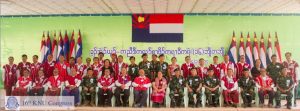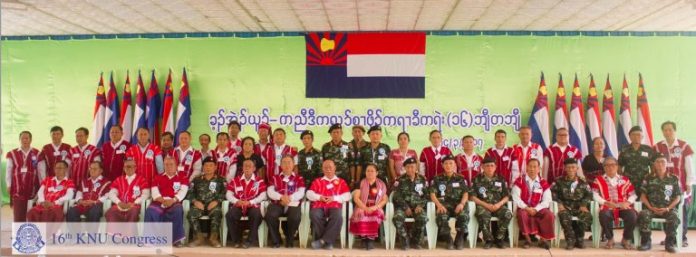The Karen National Union (KNU) demanded the release of detained leaders one day after the February 1, military coup.
The Tatmadaw (military) moved quickly to disband the National reconciliation and Peace Centre (NRPC), the leading internal peace process mechanism of the previous National League for Democracy (NLD) government, while arresting some of its civilian leaders.
According to The Myanmar Times, the Tatmadaw informed the ethnic armed groups that future peace talks will only be continued with the military-formed peace committee.

“We have been informed that the NRPC has been abolished…If there is any need for talks, we should only discuss with the group formed by the military. The members of the Northern Alliance have yet to show any clear stance on the situation,” said Lamai Gum Ja, a member of the Peace-Talk Creation Group (PCG).
After arresting the president U Win Myint, State Counselor, Daw Aung Su Kyi, other National League for Democracy (NLD) leaders, the Chief Minister of States and Divisions, pro-democracy activists and the members of government, KNU spokespersons expressed grave concern about the future of Myanmar.
KUN Central Committee member, Naw Sipho Yar Sein said, “This means that peace will be further away for our country. …. the government has been working on [advancing] internal peace and the government is elected by the public. ….it will be hard to believe internal peace is possible anymore because of the military coup.”
Many critics of the coup have pointed out the military’s seizure of power is a major obstacle to the country’s democratic transition, and it shows a lack of emphasis on the process of resolving political challenges through dialogue.
Colonel Khun Okkar, chairman of Pa-O National Liberation Organisation, issued a cautious warning that any political agreement with the new government formed by the military after its power seizure could mean that the armed ethnic groups recognise it, reported The Myanmar Times.
The coup is rooted in the military’s unproven accusation that Aung San Suu Kyi’s government rigged the elections. Coupled with that is the Tatmadaw’s fear that a new parliament would make substantial constitutional reforms — a process that stalled when former Tatmadaw officers assassinated Aung San Suu Kyi’s adviser Ko Ni in 2017. He was a prominent Muslim leader and an object of hate among nationalists within and outside the army.
Aung San Suu Kyi had also proclaimed that she would reinvigorate stalled peace negotiations and invite the ethnic armed organisations to new talks. This initiative might have been an attempt to take control from the Tatmadaw over the peace process. The army has broken ceasefires since 2015 in many ethnic regions such as Karen State, where numerous violent incursions into Karen National Union areas have resulted in thousands of civilian displacements and casualties. There have also been growing civilian protests against the Tatmadaw, making its ‘divide and rule’ policy increasingly untenable.
Ethnic armed groups that signed the Nationwide Ceasefire Agreement (NCA) will undoubtedly have difficulties to discuss the path to peace via a political process, now that trust has been taken away through arrest and detention of elected government leaders.
The KNU statement noted they remain committed to building a Federal Democractic Union and stand together with all ethnic people for the democratic transition. The KNU reiterated their demands for the release of all detainees including state leaders and pro-democracy activists unconditionally, in order for the country to discuss peaceful solutions to all political issues.

